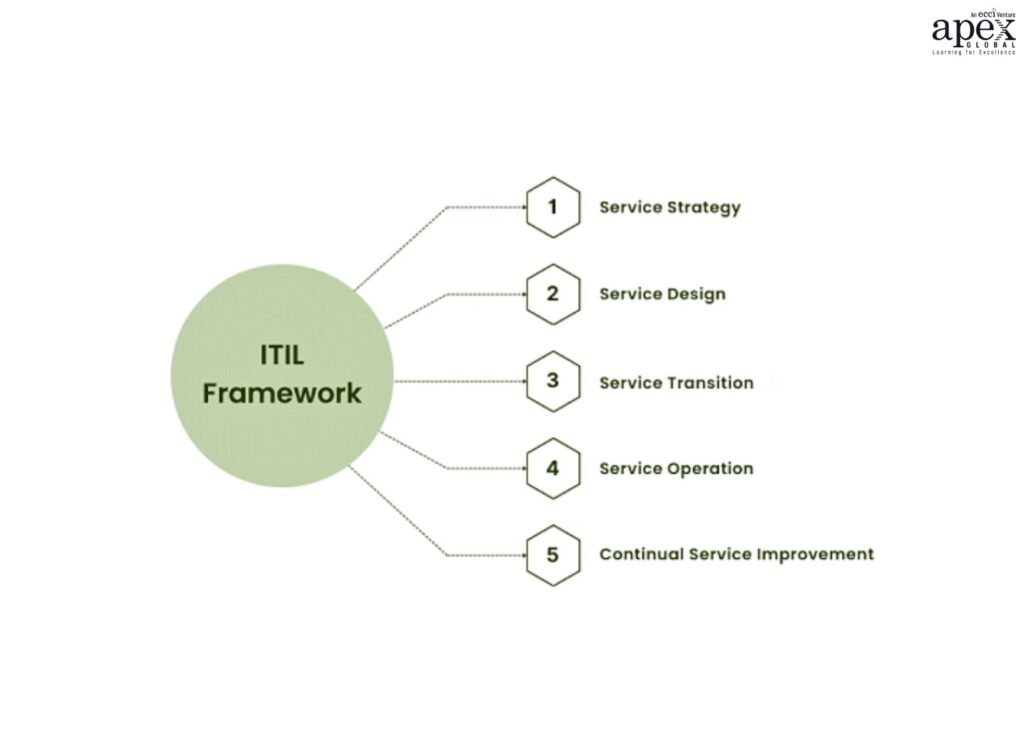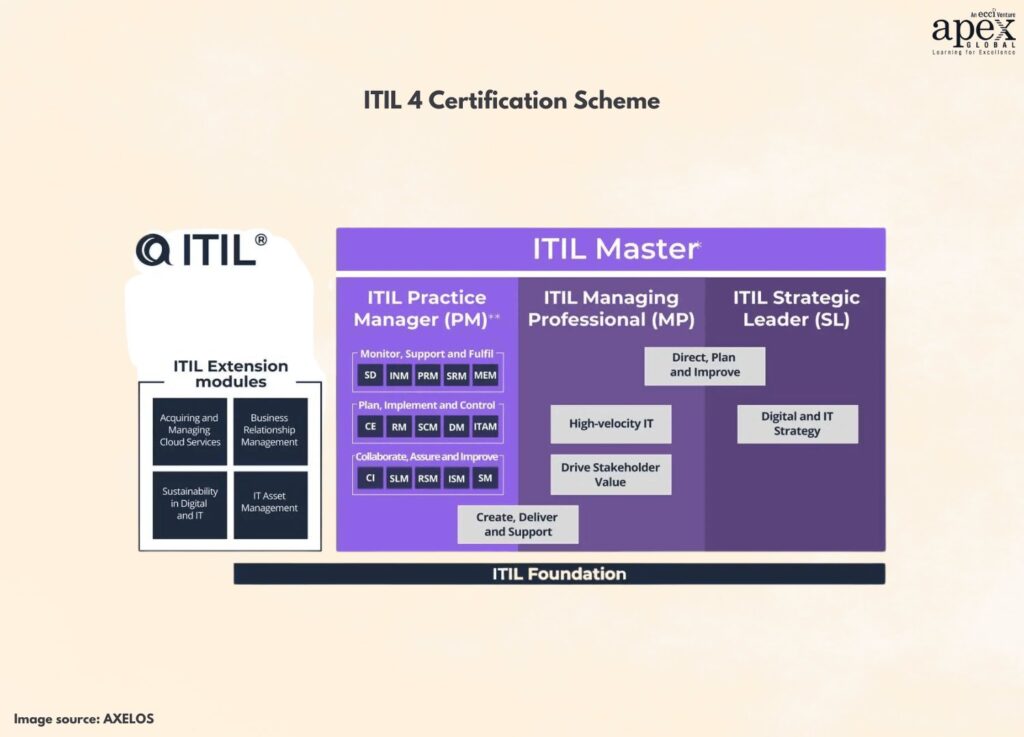Where once Information Technology (IT) played only the most minor of supportive roles in business, it has undergone significant expansion.
Today, IT services are spread across every department and function, from facilitating day-to-day communications to tracking inventory, managing recruitment practices, predicting market changes, and more.
And, thanks to the recent shift towards remote and hybrid office setups, IT is becoming increasingly essential even in the most mundane of work-related activities.
As organizations are increasingly relying on technology, they are discovering a need for better coordination and alignment of IT services.
This is where the ITIL comes into play, providing a clear set of best practices for IT service management (ITSM) – delivering and managing IT services within an organization.
So what exactly is ITIL? Why is it so important for organizations?
In this article, we will delve into ITIL – exploring its definition, importance, historical evolution, the ITIL process framework, ITIL certifications, and training. Ready to dive in? Let’s go!
What you'll find in this article [hide]
What is ITIL?
IIT Infrastructure Library or ITIL is a widely recognized IT service management framework that outlines best practices and guidelines for delivering IT services. ITIL’s systematic approach to ITSM can help organizations manage risk, increase customer satisfaction, establish cost-effective practices, and build a stable IT environment capable of accommodating growth, scalability, and adaptability.
ITIL has undergone multiple revisions throughout its history and contains five books which cover all processes and stages within the IT service lifecycle. The books contain recommendations and a framework designed to help organizations standardize their service management processes.
The goal of ITIL is for businesses to create predictable IT environments and to provide the best customer service possible to customers and clients. This is achieved by streamlining processes and identifying opportunities to enhance efficiency.
Brief history of ITIL
The British Government’s CCTA (Central Computer and Telecommunications Agency) developed ITIL in the 1980s. At its inception, they were looking for a set of standardized guidelines to improve the IT performance of organizations. Over the years, ITIL has grown in popularity and was revised several times to meet IT administrators’ needs while adapting to newer IT management approaches.
ITIL is now owned by AXELOS, a joint venture set up in 2014 between the British Government and Capita. In 2019, they released the latest ITIL version, called ITIL v4, which takes a more holistic and adaptable approach to IT service management, and announced the discontinuation of ITIL v3 in 2022.
Why is ITIL important?
ITIL plays a crucial role in supporting organizations by providing a flexible and stable framework for ITSM. The adoption of ITIL, particularly the latest version, ITIL 4, brings the following benefits for organizations:
- Alignment of IT goals with business goals: ITIL helps companies align their IT goals with their overall business goals, ensuring that IT services play a direct role in driving business success.
- Cost tracking and optimization: By implementing ITIL practices, businesses can track IT costs more effectively and optimize their resources to enhance cost efficiency.
- Streamlined service delivery: ITIL encourages a structured approach to service management, resulting in more organized and efficient IT service delivery, which in turn contributes to enhanced customer satisfaction.
- Value creation: The ITIL framework emphasizes value creation, ensuring that every IT activity contributes meaningfully to the organization’s overall value proposition.
- Better risk management: Implementing ITIL leads to better risk management, ensuring potential risks are identified and mitigated effectively.
- Competitive advantage: Organizations that implement ITIL can respond more effectively to market changes, improve customer experiences, and outperform competitors not prioritizing IT service management.
The ITIL process framework

The ITIL process framework refers to the structured set of processes and functions outlined within ITIL. It is the practical application of ITIL principles. The ITIL service lifecycle is a fundamental concept within the ITIL framework, describing the path that IT services follow in their lifetime. It contains five broad stages or five phases as follows:
i) Service strategy: This initial stage defines the overall vision and objectives for IT services, considering the organization’s strategic goals. It includes activities like assessing market demand, identifying growth opportunities, and developing a clear plan for the implementation of services.
ii) Service design: The service design step, which builds on the service strategy, focuses on transforming ideas into functional IT services. This stage includes designing processes, policies, and procedures that govern service delivery, ensuring that services are reliable, scalable, and efficient.
iii) Service transition: During this phase, the processes and services designed in the previous stage are moved into the live environment. This stage involves processes such as change, release, and deployment management. The main goal of this stage is to ensure the smooth and efficient transition of IT services, with minimal disruption to the business.
iv) Service operation: During this phase, the IT services that have been designed and transitioned are delivered to the customers. This stage includes problem management, incident management, and request fulfillment. It aims to deliver and support IT services reliably and efficiently.
v) Continual service improvement: This phase is the engine that drives ongoing improvement. It involves activities like assessing the effectiveness of services, identifying areas for improvement, and implementing changes to optimize service quality, efficiency, and cost-effectiveness.
It’s crucial to understand that these stages are not isolated; they are interlinked, and their interaction ensures the delivery of top-notch IT services.
ITIL certifications
For IT professionals, a successful career in ITSM starts with an ITIL certification. ITIL certifications are programs that provide ITIL training to IT professionals and other individuals. They are designed to cater to different levels of expertise, from beginners to experienced individuals.
They validate your understanding and application of ITIL practices, which can enhance your ability to contribute effectively to IT service management within your organization. Learn more about the benefits of ITIL certifications for individuals and companies in our blogs: ITILⓇ Certification: The Key To A Successful IT Career and The Value Of An ITILⓇ Certification.
The ITIL 4 certification scheme includes the following five main modules:
- ITIL 4 Foundation
- ITIL 4 Managing Professional
- ITIL 4 Strategic Leader
- ITIL 4 Practice Manager
- ITIL 4 Master
The first step is successfully completing the ITIL 4 Foundation exam. It is an entry-level certification exam that covers the fundamental principles of ITIL 4. Then, once you pass the ITIL 4 Foundation exam, you can select either the ITIL 4 Managing Professional, ITIL 4 Strategic Leader, or ITIL 4 Practice Manager paths. You can stop at any of these paths, or if you complete all the three modules, you’ll become eligible to earn the ITIL 4 Master designation.

ITIL training
The first step to getting your ITIL certification is to join an ITIL training course with an AXELOS-accredited training provider like APEX Global Learning.
Accredited training organizations offer ITIL training courses in diverse formats. So, you can complete your ITIL certification training through e-learning in a virtual environment, through traditional in-person classes, or through a hybrid method that combines both aspects of virtual and in-person training. Alternatively, you can choose to self-study, but you’ll miss out on the following key benefits of ITIL training courses:
- Structured learning path: ITIL training courses provide a structured learning path, allowing individuals to understand and apply these practices in a practical and efficient manner.
- Expert instructors: With ITIL training courses, you can learn from certified instructors who have practical knowledge and industry experience.
- Flexible learning options: As we have discussed above, training providers offer flexibility in learning formats. So you can choose one that best fits your schedule and learning preferences.
- Interactive learning: Training programs often incorporate interactive elements, such as case studies, discussions, and hands-on exercises, ensuring that participants grasp the concepts thoroughly and can apply them in real-world scenarios.
- Official course materials: ITIL training courses provide participants with official ITIL course materials, ensuring that the content aligns with the latest ITIL practices and standards.
- Preparation for certification exams: ITIL training courses are designed to prepare participants for ITIL certification exams. So, they often include exam preparation strategies, practice tests, and tips for success, increasing your likelihood of passing the exams.
What’s next?
Organizations worldwide are embracing ITIL principles to enhance efficiency, align IT services with business goals, and ensure a consistent and high-quality user experience.

Thus, an ITIL certification is essential for any IT professional who seeks to stay current with industry best practices and on top of IT service delivery and management.
Embracing the ITIL framework through an ITIL training course by a reputable organization is a strategic step towards staying ahead in the ever-changing world of ITSM.
APEX Global Learning is a leading training provider in the Philippines offering ITIL® 4 Foundation Certification Training. This course is a two-day immersive training that equips you with a firm understanding of the ITIL 4 framework, including core concepts, and terminologies of the ITIL service lifecycle.
It is conducted by a certified and accredited instructor and is designed to prepare you for the ITIL® 4 Foundation Certification Exam. Enroll in our ITIL training in the Philippines, pass the exam, get certified, and help your organization achieve its objectives with utmost precision!
Have any questions? Reach out to us today! We’d love to hear from you.


